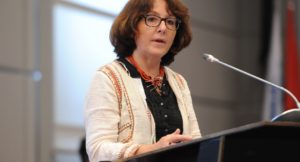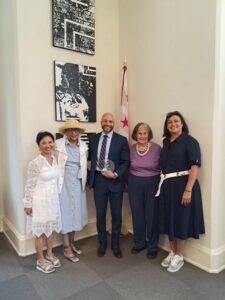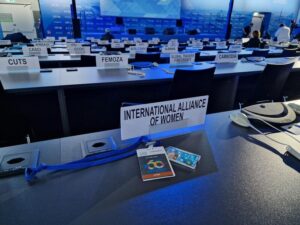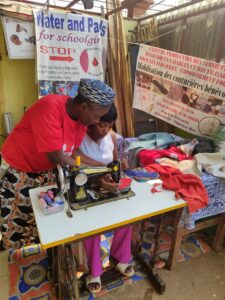
(OSCE/Micky Kroell)
Femicide is far more than murder. In general killing is done by men. One man kills another. This is statistical evidence. As we also know, men kill women, women kill women and women also kill men.
And then, there is “femicide”, a term, a combination of “femina” and “caedere” – meaning “woman killing”. It is used whenever a woman is killed because of her sex. It’s the murder by a partner or family member (family honour), or criminal gangs as a power demonstration (humiliation of the enemy), and as a weapon of war.
It’s the definition seen through the gender aspect that makes the difference, because it reflects the reasons behind femicide.: Violence against women is rooted in inequalities and discrimination against women and its prevention and eradication must be grounded in gender equality and empowerment of women.
In 2012 the United Nations counted approximately 43.000 cases of femicide (killings within relationship). This is four times the number of persons killed in terrorist attacks, as stated by Paul Bekkers, director of OSCE and General Secretary Lamberto Zannier. (Approximately, because of the lack of reliable data on femicide). This is why Duvravka Simonovic, UN Special Rapporteur on Violence against Women, its Causes and Consequences, once again requested collection of data as an important first step towards creating awareness as a precondition for requesting concrete measures to prevent femicide. In consequence she promoted the establishment of Femicide Watches at the national level, the systematic collection and documentation of data, allowing an analysis of victims’ profiles and perpetrators’ profiles – and, therefore, address the root causes.
Representatives of the Georgian Young Lawyers Association, of the Serbian Department of Gender Equality, of the Armenian Coalition to stop violence against women, of the Femicide Census, in partnership with Women’s Aid Federation England, of the Ministry of National Economy of the Republic of Kazakhstan, the Second University of Naples and COST Action “Femicide across Europe” and the Group of Experts on Action against Violence against Women and Domestic Violence participated in two plenary sessions in a panel format.
Suggestions put forward: training of police officers, encouragement of women to bring violent cases to the courts, awareness-raising within the judiciary, the administration. One very important request came from Ms. Anna Costanza Baldry, Professor in criminal and law psychology, representative of the Second Universit of Naples calling for help for the orphans of inter-family femicide.
According to Aldo Lale-Demos, Vice-Director of UNODC (the Office of the United Nations on Drugs and Crime Prevention, with its headquarters in Vienna) 78 per cent of the victims killed by partners are women – with regional differences. Considering all regional differences all these cases Had one aspect in common: “it represents the most extreme, ultimate form of inequality between women and men”.
Monitoring at both global and regional levels has shown that:
- Femicide or gender related killings of women, and sexual and other forms of gender based violence against women and girls are widespread and persistent human rights violations,
- There is widespread impunity due to the lack of implementation of the global and regional instruments on women’s rights and violence against women and the failure to turn these into real pr4oteftiuonof every woman and girl,
- There are significant gaps and shortcomings in national legislation and prevention systems often combined with tolerance of such violence, exacerbated by a lack of reliable and disaggregated ate, the absence of adequate risk assessments, and concealment and underreporting of gender-related killings, rapes and other form of gender based violence against women.
The symposium had been jointly called by the UN Rapporteur on Violence against Women and all other global and regional mechanisms to end femicide and gender-based violence ( The Committee on the Elimination of Discrimination against Women (Cedaw), the Inter-American Special Rapporteur on violence against women, the Special Rapporteur on the Rights of Women in Africa (Maputo Protocol) , the UN Working Group on the issue of discrimination against women in law and in practice, the Committee of Experts of the Follow-up Mechanisms to the Belém de Pará Convention (MESECVI) and the Group of Experts on Action against Violence against Women and Domestic Violence of the Council of Europe (GREVIO).
Suggestion for IAW: creation of an IAW observatory on national femicide data on the basis of a questionnaire to be sent to member organizations and individual members.
Some useful e-addresses;
http://coe.int/en/web/istanbul-convention/grevio
http://www.oas.org/en/mesecvi/about.asp



